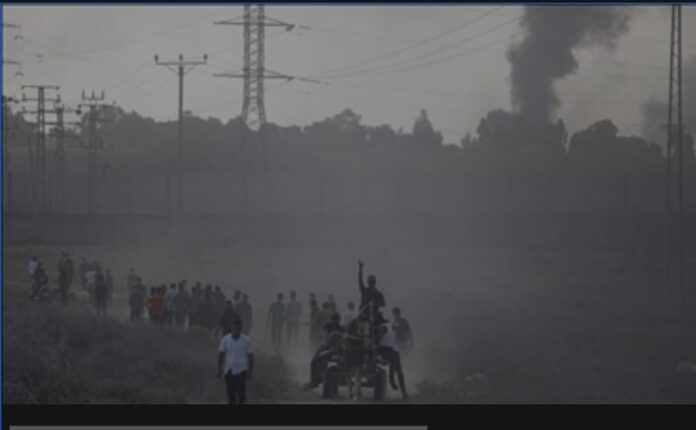The world is bewildered by the fact that Hamas has launched a surprise attack on Israel and the fighting has been ongoing for three consecutive days. People are questioning what Hamas is and what motivates them to pick a fight with one of the most advanced armies equipped with modern military equipment and intelligence gathering capabilities. The death toll on both sides has exceeded 1,500, with over 5,000 injuries.
Hamas is a political and military organization that operates primarily in the Gaza Strip. It was founded in 1987 during the First Intifada as an offshoot of the Muslim Brotherhood. Hamas is classified as a terrorist organization by several countries, including the United States, European Union, and Israel.
Hamas has a complex and contested history, with varying interpretations and perspectives. It emerged as a resistance movement against Israeli occupation and has since evolved into a significant political force in Palestine.
Hamas also runs social programmes, provides healthcare and education, and also engages in armed resistance against Israel. It has frequently clashed with Israeli forces and has been involved in numerous rocket attacks, suicide bombings, and other acts of violence.
Hamas’ main goal is the liberation of Palestine and the establishment of an Islamic state, replacing Israel. Its conflict with Israel has resulted in multiple wars and ongoing tensions in the region.
Hamas, despite being significantly outnumbered and outgunned compared to the Israeli military, has been able to launch attacks due to various factors.
Firstly, Hamas primarily operates in the Gaza Strip, where it has gained significant support and influence among the Palestinian population. This support allows Hamas to recruit members and maintain a network of supporters, informants, and sympathizers.
Secondly, Hamas uses asymmetric warfare tactics against Israel, which means they employ unconventional methods and strategies to overcome the Israeli military’s technological and military superiority. Hamas primarily relies on rockets, mortars, and other projectiles to target Israeli cities near the Gaza Strip.
Additionally, Hamas benefits from the dense urban environment of the Gaza Strip, which provides cover and makes it difficult for Israeli forces to target specific militants without causing a significant number of civilian casualties. This tactic of blending in with the civilian population has drawn international criticism, as it puts innocent people at risk.
Furthermore, Hamas has received support from other countries and organizations sympathetic to its cause. It has obtained weapons and financial aid from Iran, as well as other regional actors. This external support has enabled Hamas to maintain its military capabilities and sustain its attacks against Israeli forces.
Meanwhile, Israel receives significant support from the United States, including military aid, intelligence sharing, and advanced weaponry. However, the nature of the Israeli-Palestinian conflict and the challenges posed by Hamas make it a complex and difficult situation without easy solutions.
Moreover, Hamas has developed asymmetric warfare tactics that leverage tunnels, rocket systems, and other means to attack Israeli towns cities and military targets. These tactics, combined with the unique challenges of urban warfare, make it difficult for any military, regardless of their capabilities, to completely eliminate the threat posed by Hamas.
While Israel has a technologically advanced military, Hamas’ tactics, the complex nature of the conflict, and the constraints imposed by international pressure contribute to the challenges Israel faces in fully neutralizing Hamas.
As a result, Israeli military operations must consider the safety and security of civilians, which can limit their ability to fully neutralize Hamas’ capabilities.
Moreover, Hamas has developed asymmetric warfare tactics that leverage tunnels, rocket systems, and other means to attack Israeli civilians and military targets. These tactics, combined with the unique challenges of urban warfare, make it difficult for any military, regardless of their capabilities, to completely eliminate the threat posed by Hamas.
Mohamed Mohamoud Adde is an academic and a political Analyst specialising in offering expert analysis, insight and recommendations on Political developments.


